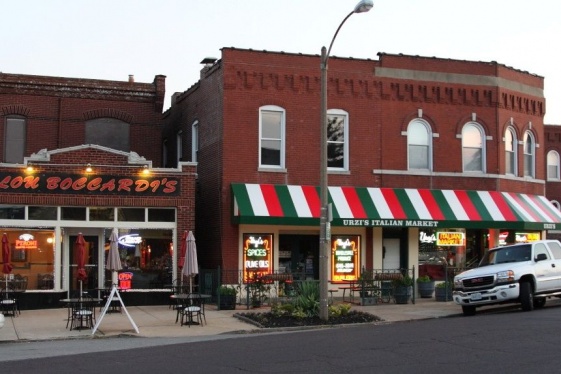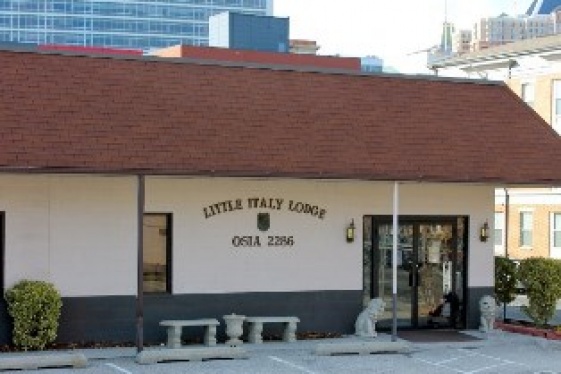

First Italian woman movie director, one of the first in the world, Elvira Notari is one of those figures that tell an extraordinary life, full of even more important success when compared to the role of women in the society and the art of the age she lived in.
Elvira was born in Salerno on February 10, 1875, daughter of Diego Coda and Agnes Vignes. After attending the School of Science, she moved to Naples with her family in 1902, where she began to work as a milliner. In Naples Elvira begins to develop her greatest passion, the one where she will achieve unexpected peaks: cinema.
She meets the photographer Nicola Notari, a former painter who specialized in the coloring of photographic film, who she will marry in August 1902. The spouses give birth together to the film production company Film Dora, producing topical documentaries and short films. Later, with the new name of Dora Film, Elvira and Nicola also start producing feature films, often drawn from popular fiction from facts truly occurred in Naples or from successful Neapolitan songs.
The extraordinary tenacity of Elvira led her to produce her works with a pioneering technique. Sometimes the frames were colored by hand, individually; other times they would be colored by a machine, with uniform colors changing from scene to scene, depending on the variables expressed feelings: blue for melancholy, red for anger. The images were then synchronized with music and songs, played live. The complexity and peculiarity of this technique has led scholars to regard it as the first form of entertainment multimedia ever.
Elvira's company well deserved success will arrive thanks to the United States. Dora Film soon becomes one of the most important production companies of Italian cinema those times. However, opposed in Italy, Elvira was denied a national circulation and had to rely only on the American market, where the products of Elvira and Nicola landed and began to be distributed from the twenties.
Dora Film also had an office in New York, in the famous and populous Mulberry Street in Manhattan Little Italy, where Elvira's works would have a considerable following from the Italian-born population. Her movies, even more than the big productions, were instrumental in helping to nourish the imaginary sphere of migrants, and to outline some ideas about Italy, alternative to those commonly thought.
Revolutionary also was the method of teaching of the Italian director. Elvira opened a school of cinematic art, where she taught a naturalistic way of acting, without the pathos excesses typical of the the taste of the public of that time. She also taught a method of expressing the emotions more modernly based on the psychological dimension of the characters.
Elvira Notari will direct more than sixty films, of which she also writes the subjects and the screenplays, often inspired by Naples. In the world shown in her films, poverty would reign, with a strong social unrest, whose injustices and dramas would always end defeated by the triumph of love. Her works would appeal to feelings and emotions, so much convincing that once a spectator in a theatre in Naples fired several shots towards the screen to "kill the bad guy".
Opposed by the Italian Fascist regime, very often her films also stumble in its censorship. Some of her works were in fact marked as anti-nationalist, denying their chances to be exported to the United States: sometimes, though, they would clandestinely circulate among the New York community of the Italian immigrants in Little Italy.
Dora Film will closed all its production activities in 1930, due to inability to support the increasingly high financial cost for the production of movies, due to the advent of the cinema sound.
Elvira Notari will die in Cava de 'Tirreni, near Salerno, on December 17, 1946. She left an examplary organizational wisdom, a revolutionary artistic vision and, in a strongly patriarchal society, an extraordinary strength and perseverance.
You may be interested
-
“The Hill” St. Louis’ Little Italy
When the fire hydrants begin to look like Italian flags with green, red and white stripes,...
-
1st Annual Little Italy Cannoli Tournament
Little Italy San Jose will be hosting a single elimination Cannoli tournament to coincide...
-
2015 scholarship competition
The La Famiglia Scholarship committee is pleased to announce the financial aid competition...
-
30th Annual Art Holiday Walk, Winter Winter...
Holiday walk hours Friday, 12/5 noon-9pm, Saturday ,12/6 noon-9pm Sunday, 12/7 noon-6pm. S...
-
An Unlikely Union: The love-hate story of Ne...
Award-winning author and Brooklynite Paul Moses is back with a historic yet dazzling sto...
-
Cathedral of St. John the Divine, Oratorio S...
For the first time ever, The Cathedral of St. John the Divine, in collaboration with the O...
-
Davide Gambino è il miglior "Young Italian F...
Si intitola Pietra Pesante, ed è il miglior giovane documentario italiano, a detta della N...
-
Garibaldi-Meucci Museum to Celebrate Ezio Pi...
On Sunday, November 17 at 2 p.m., Nick Dowen will present an hour-long program on the life...










